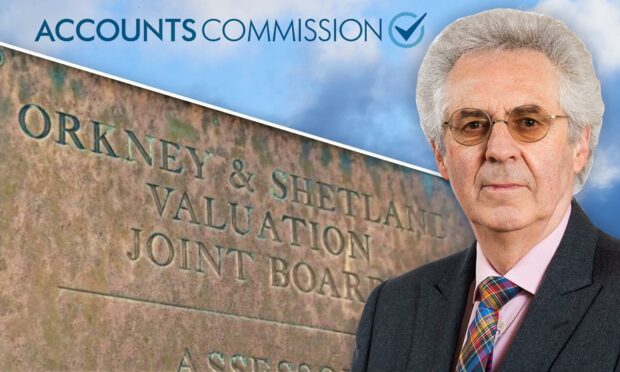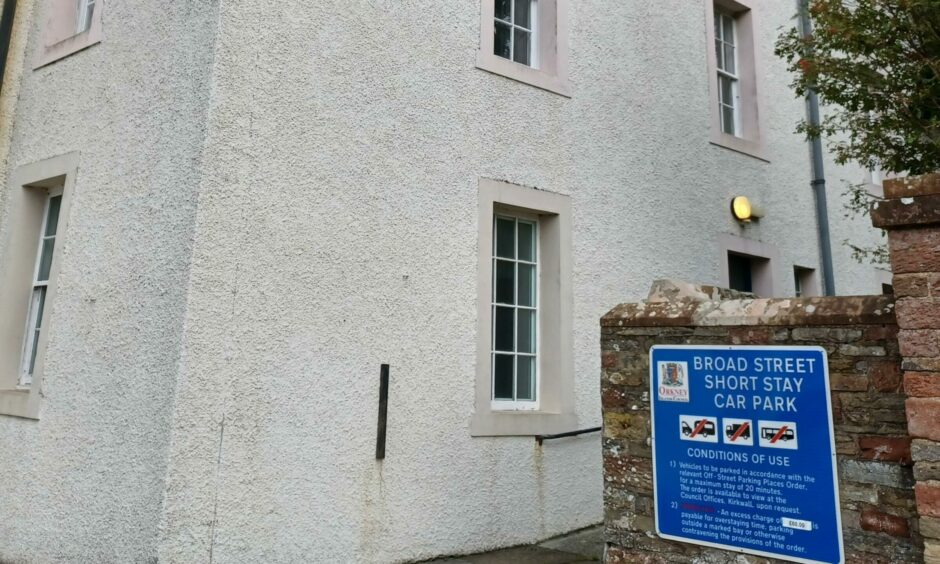A group of councillors acted unlawfully and failed to keep track of how much a council tax consultant was being paid, a damning report has revealed.
The Orkney and Shetland valuation joint board is responsible for appointing a council tax assessor for the northern isles.
A report from the Accounts Commission published today found that the way contracts and pay for the assessor and depute assessor was scrutinised was “seriously flawed”.
The report highlights significant concerns around transparency.
Made up of councillors from both local authorities, the joint board looks after the valuation roll and council tax valuation lists.
It has accepted the findings and vowed to make changes.
William Moyes, chairman of the Accounts Commission, said: “The flaws and weaknesses in decision-making at this valuation joint board are serious.
“We welcome the commitment and progress made to address these significant concerns.
“Following May’s local government elections, we expect effective training and development to be in place, enabling board members to fulfil their responsibilities.”
What went wrong?
A decision to extend and enhance the contract of assessor Dennis Stevenson – the most senior member of the joint board – was taken at a meeting that was held in private.
That made the board’s decision unlawful.
Mr Stevenson had wanted to retire and there had been difficulties finding someone to fill his role.
An increase in salary was discussed to encourage him to stay.
This would have allowed the joint board to continue functioning until a replacement assessor was found.
However, this was outside the powers of the board’s leadership team.
Recruitment difficulties had also led to the appointment of a depute assessor on a consultancy basis.
The assessor’s hourly rate of pay increased by 400% over a five-year period between 2016 and 2021.
The commission said these increases were “subject to neither appropriate scrutiny nor challenge”.
According to the report, these issues resulted in extra costs, additional work and risked reputational damage.
They also undermined confidence that decisions taken provided value for money.
‘Panic mode’
The upcoming report was discussed by the board at a meeting last month.
Chairman Andrew Drever said he had been in “panic mode”.
He said: “We had no deputy assessor and we were heading for the retirement of an assessor.
“I was concerned about the statutory service provision of the board and how to make it work.
“We had tried recruitment campaigns for deputies in the past – quite a number of them over a five-year period – and had been unsuccessful.”
Shetland councillor Allison Duncan said he was “totally embarrassed that it has come to this and it is certainly a spectacular own goal”.
However, the consensus among the rest of the board members was that they were all culpable.
Orkney councillor David Dawson said seeing the terms “ultra vires” and “unlawful” chilled him to the bone.
However, he and other board members shared the view that it was done to avoid a “major crisis”.
Vice-convener of the board, Theo Smith, said the board have “failed in their duty but in defence of that, I’m not sure we knew exactly what our duty was”.
What happens next?
There will be plenty of training ahead for board members and staff.
This will be needed, with a likely influx of new board members after the elections in May.
The Accounts Commission will keep tabs on whether things have improved.


